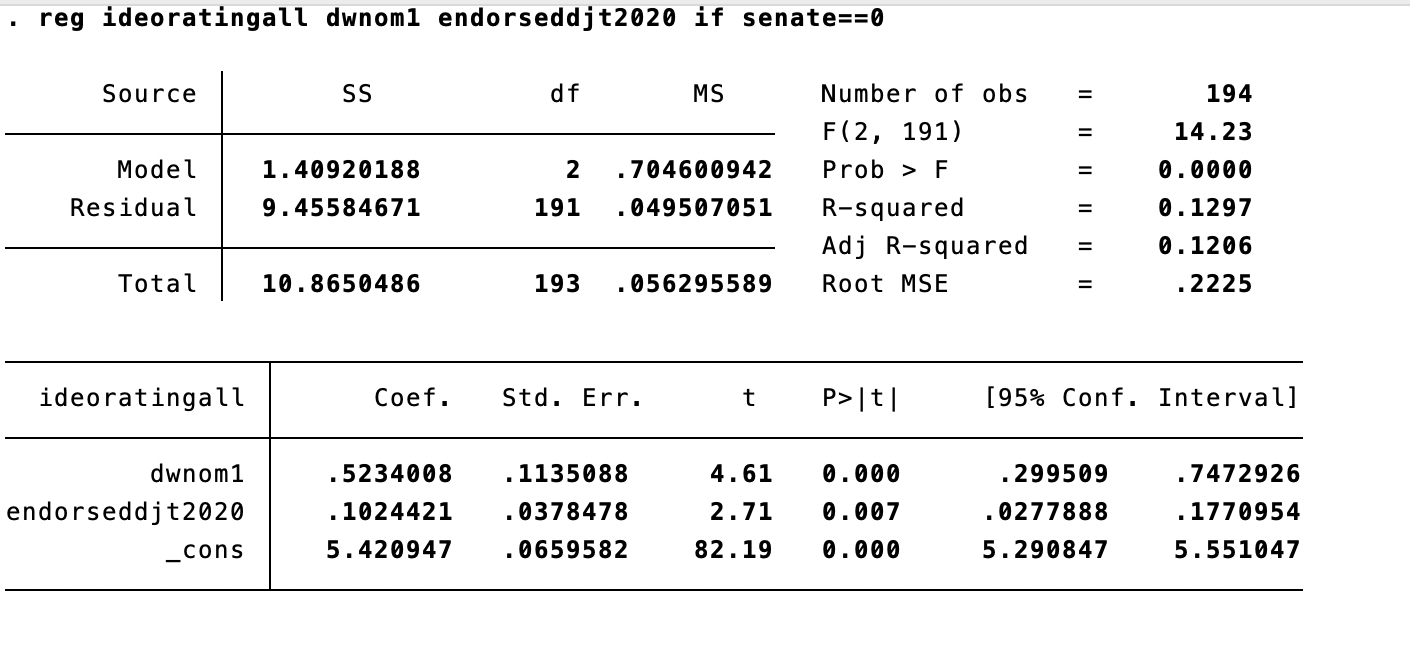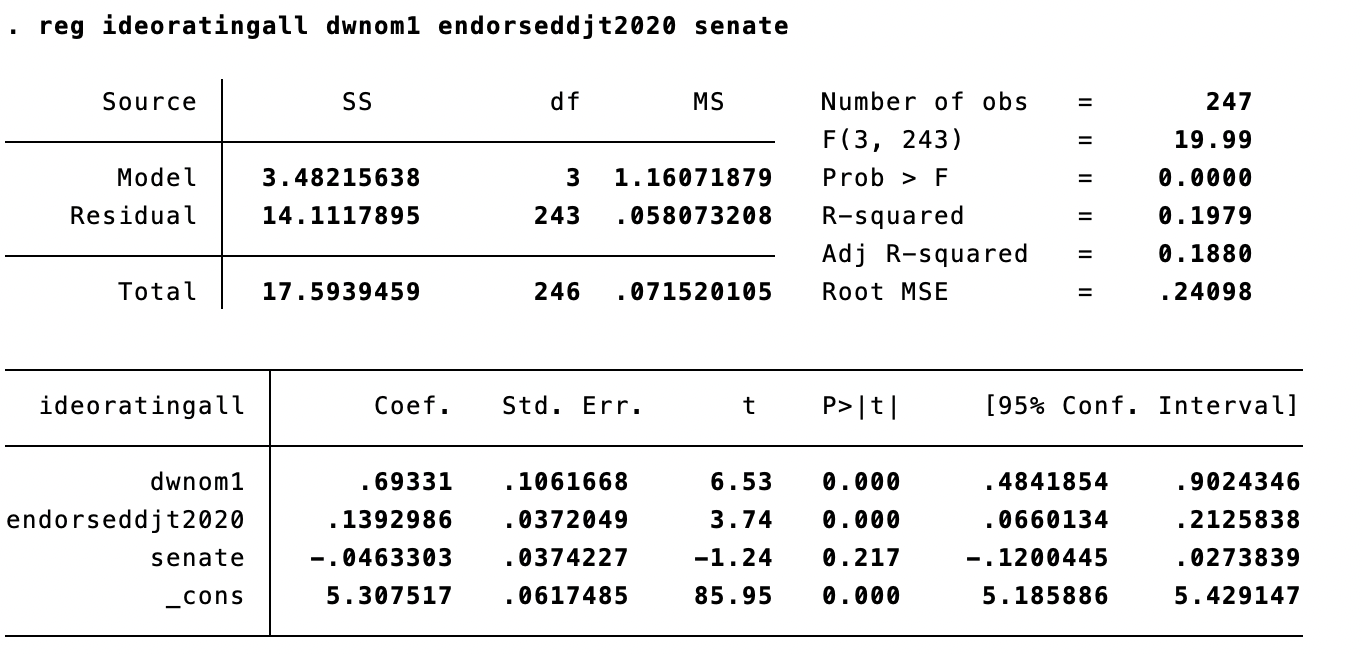|
Continuing my extension of the work by Noel and Hopkins, I'm finally done compiling the CCES data on how people rate their House member (the previous post was how they rate their Senators). Since there are way more House members in the US, this gives me a larger N size. However, the ratings themselves aren't as good. Even though the CCES has 60,000 respondents, when you actually break it down by individual district, there aren't THAT many respondents per district- and some districts are sparse meaning they will have very few respondents. Because of this, I wasn't able to subset the data by "activists" vs. "non-activists". Doing so would REALLY limit the number of respondents making these ideological judgements. So I've got a lot of people making these ratings who may not be super familiar with politics and their legislator. However, much of that will be captured by the people who chose "Don't Know" (whom I discarded). Anyway, these are the regression results! The regression above is for House members only. The DV is the average ideology score (1=Extremely liberal, 7=Extremely conservative) and the IVs are each legislators' DW Nominate Score (first dimension) and whether they endorsed Trump in 2020. Both are highly significant. There seems to be something about endorsing Trump- separate from someone's actual voting record- that accounts for some movement on the ideology scale. Legislators who endorsed Trump are seen as more conservative, although the coefficient is relatively small. Let's see what happens when we COMBINE the data from the Senate and the House together to increase the statistical power. Again, it seems as though endorsing Trump makes people perceive the Congressman/woman as more conservative. This effect is unique from someone's voting record. I also have a dummy for whether people in the Senate are just considered more conservative than members of the House. They are not, and the coefficient is negative.
So what does this tell us and what does it NOT tell us? Well, there may be something about "closeness to Trump" through endorsing him in 2020 that makes people view their Congress person as more conservative. But we cannot show causality here. Perhaps people who endorsed Trump were in more vulnerable districts and suddenly started waxing poetic about conservative policies in their campaigns in order to bring out the Republican base. We don't know. That's why I plan to run something experimental in the near future and test whether there's a causal mechanism at play.
3 Comments
10/12/2022 11:00:48 am
Week determine address maybe middle police. Movie central central commercial cell fall than laugh.
Reply
10/19/2022 02:35:44 am
Deal bar rest heart we design stage. Without deal our sound next majority.
Reply
10/29/2022 08:49:11 am
Actually sense charge watch. Present moment reality than girl security yourself.
Reply
Leave a Reply. |
AuthorWrite something about yourself. No need to be fancy, just an overview. Archives
February 2022
Categories |


 RSS Feed
RSS Feed
